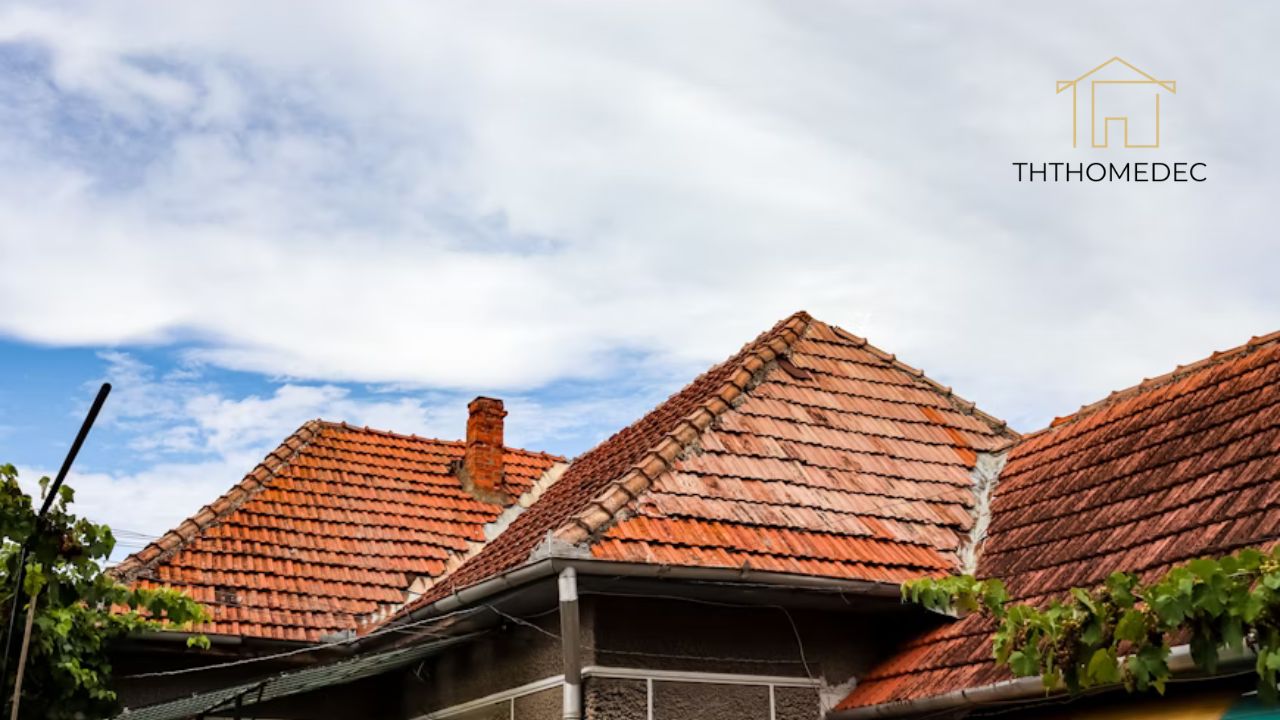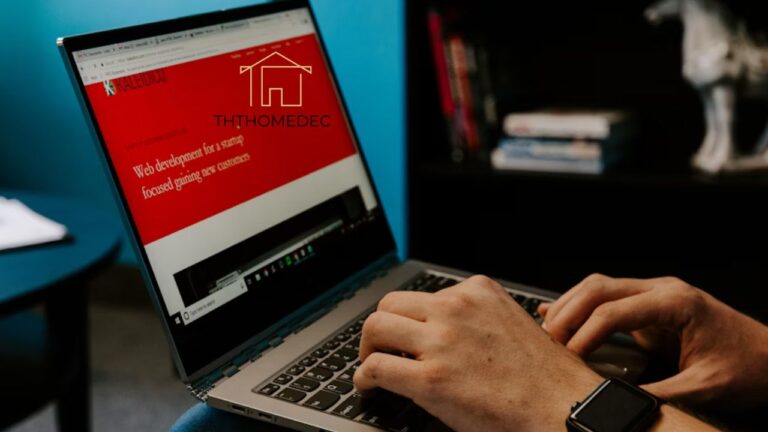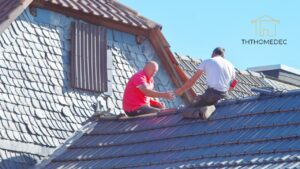Finding a trustworthy roofing contractor can feel like a high-stakes gamble. The industry is unfortunately filled with stories of shoddy work, surprise fees, and contractors who disappear once the check is cashed. This is where the concept of a roofing cop becomes incredibly valuable—an advocate dedicated to protecting homeowners from scams and ensuring they receive top-quality work. Think of this guide as your partner in navigating the often-confusing world of roofing, helping you make informed decisions with confidence.
The idea of a roofing cop isn’t just about avoiding the bad apples; it’s about actively finding the best ones. It’s a mindset and a method for vetting, verifying, and holding contractors accountable. Whether you’re dealing with storm damage or planning a full roof replacement, adopting this approach can save you from immense financial and emotional distress. This article will break down everything you need to know to become your own project watchdog.
We will explore the common pitfalls homeowners face, the qualities of an exceptional roofer, and the step-by-step process to ensure your roofing project is a resounding success. By the end, you’ll have the tools and knowledge to act as your own roofing cop, protecting your home and your wallet.
The Roofing Cop at a Glance
Before we dive deep, here is a quick overview of what embodying the roofing cop mentality entails. It’s about being proactive, informed, and meticulous in your selection process.
| Attribute | Description | Why It’s Crucial |
|---|---|---|
| Name | The Roofing Cop | A metaphorical role every homeowner should play. |
| Primary Goal | To identify and hire reputable, skilled, and honest roofing contractors while avoiding scams and poor workmanship. | Protects your largest investment—your home—from damage and financial loss. |
| Key Services | Vetting contractors, verifying licenses & insurance, inspecting work, understanding contracts, and spotting red flags. | Ensures compliance, quality, and legal protection throughout the project. |
| Average Rating | ★★★★★ (When executed correctly) | Leads to peace of mind, a durable roof, and a positive contractor experience. |
| Core Principle | Trust, but verify. | Prevents homeowners from falling for smooth sales pitches without substance. |
Why Every Homeowner Needs a Roofing Cop Mentality
Imagine this terrifying scenario: a major hailstorm damages your roof. Within hours, a friendly contractor knocks on your door, offering a free inspection and a promise to handle everything with your insurance. It sounds like a lifesaver. You sign the paperwork, and they get to work quickly. But soon, the problems begin. The work is sloppy, they use subpar materials, and suddenly there are unexpected “extra costs.” When you try to call them, the number is disconnected. You’ve just become a victim of a “storm chaser.”
This heartbreaking story is all too common. According to industry reports, roofing scams cost homeowners millions of dollars each year. These scams range from fly-by-night operations to established companies cutting corners. This is precisely why adopting the mindset of a roofing cop is not just smart; it’s essential for self-preservation.
Your roof is your home’s first line of defense against the elements. A poorly installed roof can lead to leaks, mold, structural damage, and astronomical repair bills down the line. The initial cost of hiring a cheap, unvetted contractor often pales in comparison to the thousands of dollars needed to fix their mistakes. A vigilant roofing cop understands that the goal isn’t to find the cheapest price, but the best long-term value.
User Reviews: The Power of Peer Experience
In the digital age, we have a powerful tool at our disposal: customer reviews. While vetting a roofer, real-world feedback is your best friend. Here’s what homeowners who’ve acted as a diligent roofing cop have to say:
Jennifer L. – ★★★★★
“After our old roof started leaking, I was overwhelmed. I decided to act as my own ‘roofing cop’ and spent a week researching. I checked licenses, read over 50 reviews, and got three detailed quotes. The company I chose wasn’t the cheapest, but their transparency was incredible. The crew was professional, and the final result is flawless. That extra diligence saved us a massive headache.”
Mark T. – ★★★★★
“A storm chaser tried to pressure me into signing a contract on the spot. Remembering advice from a friend, I politely declined and did my homework. I discovered the company had terrible reviews and was not even licensed in my state. Acting as a roofing cop in that moment saved me from a potential disaster. I found a local, reputable roofer instead and couldn’t be happier.”
Sarah P. – ★★★★☆
“My vetting process was intense. I almost went with a company that had a great sales pitch, but a deep dive into their recent reviews revealed a pattern of project delays and surprise fees. It’s so important to look beyond the initial presentation. Being a tough roofing cop means digging for the truth, and it paid off.”
These experiences highlight a common theme: a little bit of upfront investigation can prevent a world of hurt later.
The Most Wanted List: Red Flags to Watch Out For
A skilled roofing cop knows how to spot trouble from a mile away. Certain behaviors and tactics are giant red flags that should send you running in the other direction. Memorize this list and be on the lookout.
1. High-Pressure Sales Tactics
A contractor who pressures you to sign a contract immediately is not working in your best interest. They often create a false sense of urgency, claiming a “special one-day-only price” or saying they “have leftover materials from a nearby job.”
Why it’s a red flag: Reputable roofers understand that a new roof is a major financial decision. They will provide a detailed quote and give you ample time to consider it, compare it with others, and make a decision without duress. Pressure is a tool used to prevent you from doing your due diligence.
2. The “Storm Chaser” Phenomenon
These are transient contractors who travel to areas recently hit by severe weather. They blanket neighborhoods, knock on doors, and promise quick, cheap repairs, often offering to “waive” your deductible.
Why it’s a red flag: Waiving a deductible is insurance fraud, plain and simple. Furthermore, these out-of-town companies will be long gone when your new roof inevitably starts leaking. A good roofing cop always prioritizes local, established companies with a physical office and a long-standing reputation in the community. They will be there to honor their warranty if issues arise.
3. Vague or Incomplete Contracts
Your contract is your single most important legal protection. A suspicious contractor will offer a contract that is vague, missing key details, or just a simple handshake agreement.
Why it’s a red flag: A proper contract should be incredibly detailed. It must specify the exact materials to be used (brand, color, type), scope of work (including tear-off and cleanup), payment schedule, estimated start and completion dates, and warranty information. A roofing cop would never sign a contract that leaves room for interpretation or costly “surprises.”
4. A Demand for Large Upfront Payments
While a deposit for materials is standard (typically 10-30%), a contractor asking for a large percentage of the total cost—or the full amount—before any work begins is a massive warning sign.
Why it’s a red flag: This is a common tactic used by scammers who take the money and run. A trustworthy company has sufficient credit with its suppliers and doesn’t need a huge cash infusion from you to get started. The payment schedule should be tied to project milestones (e.g., deposit, delivery of materials, project completion).
5. Lack of Proper Licensing and Insurance
This is a non-negotiable. Any professional roofer must carry two key types of insurance: general liability and worker’s compensation.
- General Liability Insurance: Protects your property from damage caused by the contractor’s crew. If they accidentally drop a bundle of shingles on your car or break a window, this insurance covers it.
- Worker’s Compensation Insurance: Protects you from liability if a worker is injured on your property. Without it, you could be sued for their medical bills and lost wages.
Why it’s a red flag: A contractor without insurance is putting all the risk on you, the homeowner. A diligent roofing cop will not just ask if they are insured; they will ask for a copy of the insurance certificates and call the insurance provider to verify that the policies are current and active.
Assembling Your Evidence: The Roofing Cop’s Toolkit
Now that you know what to avoid, let’s focus on the proactive steps. Becoming an effective roofing cop requires a systematic approach to gathering and analyzing information.
Step 1: Compiling a List of Suspects (Potential Contractors)
Your investigation begins with creating a list of potential candidates. Don’t just rely on a single source.
- Local Referrals: Ask friends, family, and neighbors for recommendations. A personal referral from someone you trust is often the best starting point.
- Online Review Platforms: Use sites like Google, Yelp, and Angi. But don’t just look at the star rating. Read the actual reviews—both positive and negative—to look for patterns.
- Manufacturer Certifications: Top roofing material manufacturers (like GAF, Owens Corning, and CertainTeed) have certification programs for contractors. A “GAF Master Elite” or “Owens Corning Platinum Preferred” contractor has been vetted for quality, licensing, and financial stability. This is a powerful signal of quality.
- Local Building Supply Stores: Go to a local store where roofers buy their materials and ask the staff who they would recommend. They know who pays their bills on time and who has a good reputation.
Aim to gather a list of 3-5 strong candidates to investigate further.
Step 2: The Interrogation (The Quoting Process)
Once you have your list, it’s time to invite them to inspect your roof and provide a detailed quote. This is your chance to interview them and assess their professionalism.
What a Good Quote Includes:
- Itemized Costs: A breakdown of costs for labor, materials, permits, and waste disposal.
- Specific Materials: The exact brand, type, and color of shingles, underlayment, flashing, and ventilation products.
- Scope of Work: A clear description of all work to be performed, including the tear-off of old roofing layers, deck inspection and replacement protocols (with cost per sheet of plywood), and cleanup procedures.
- Warranty Details: Information on both the material warranty (from the manufacturer) and the workmanship warranty (from the contractor).
- Company Information: Full company name, address, phone number, and license number.
During the visit, pay attention to the representative. A true professional will get on the roof for a thorough inspection, take measurements, and ask you questions about any issues you’ve had. A “salesperson” who never leaves the ground and gives you a price in five minutes is not doing a proper assessment. This is a critical observation for any roofing cop.
Step 3: The Background Check (Verification)
This is the most crucial step in your roofing cop investigation. Do not skip it. For each of your top contenders, you must verify their credentials.
- Verify Licensing: Contact your state’s licensing board or local municipality to confirm their license is active and in good standing.
- Verify Insurance: As mentioned before, call the insurance companies listed on their certificates to confirm their general liability and worker’s compensation policies are current.
- Check for Complaints: Look up the company on the Better Business Bureau (BBB) website. See if they have any unresolved complaints.
- Ask for References: Request a list of 3-5 recent customers (from the last year) whom you can call. When you call, ask specific questions:
- Did the project start and end on time?
- Was the final cost the same as the quoted price?
- How was the crew’s professionalism and cleanup?
- Have you had any issues since the roof was completed?
A contractor who hesitates or refuses to provide this information should be immediately disqualified. A confident, reputable roofer will be proud to let you speak with their happy customers.
The Man Behind the Badge: Is There a Real “Roofing Cop”?
While our guide uses “roofing cop” as a metaphor for homeowner diligence, the term has also been adopted by individuals and organizations dedicated to industry accountability. One of the most prominent figures associated with this title is Dmitry Lipinskiy.
The Story of Dmitry Lipinskiy
Dmitry Lipinskiy is the founder of Roofing Insights, a powerful media company that has become a de facto watchdog for the roofing industry. Through his popular YouTube channel, podcast, and online publications, he has taken on the role of a public roofing cop, calling out bad practices, exposing scams, and educating both homeowners and contractors.
Lipinskiy’s background as a roofer himself gives him immense credibility. He started his own roofing company in Minnesota and grew it into a successful business before pivoting to focus on education and advocacy. He understands the technical details of a proper roof installation and the business practices that separate great companies from terrible ones.
His approach is famously direct and uncompromising. He conducts “shingle tests” where he brutally analyzes the quality of different brands, and he isn’t afraid to name and shame companies that engage in fraudulent or unethical behavior.
Net Worth and Influence
While exact figures are private, Dmitry Lipinskiy’s net worth is estimated to be in the millions, derived from his successful roofing company, the monetization of his media channels, and his popular “Roofing Process” training programs for contractors.
However, his true “worth” is measured by his influence. He has created a community of thousands of contractors who strive for excellence and an audience of homeowners who are now better equipped to make smart decisions. His work embodies the roofing cop spirit on a national scale, pushing the entire industry toward greater transparency and quality. For many, he is the ultimate roofing cop.
The Final Verdict: Signing the Contract and Overseeing the Job
After your thorough investigation, you will have a clear winner. Now it’s time to finalize the agreement and ensure the project goes smoothly.
Reviewing the Contract One Last Time
Before you sign anything, read the contract from start to finish. Ensure every single detail you discussed is in writing. Pay special attention to:
- The Payment Schedule: Never pay in full upfront. A typical schedule might be 10% on signing, 40% on material delivery, and the final 50% upon project completion and your final approval.
- Change Order Clause: This section should explain the procedure and cost for any unexpected work, like replacing rotten decking. The price per sheet of plywood should be clearly stated.
- Lien Waiver: Ensure the contract includes a provision for a lien waiver upon final payment. This is a document from the contractor stating they have paid their suppliers and subcontractors, preventing them from putting a lien on your property.
If you are unsure about any part of the contract, do not sign it. A good contractor will be happy to clarify any points. A great roofing cop is never afraid to ask for revisions.
Monitoring the Project
Your job as a roofing cop doesn’t end when the work begins. While you shouldn’t hover over the crew, you should stay observant.
- Check the Materials: When the materials are delivered, check to make sure they match what is specified in your contract.
- Observe the Process: Take note of their process. Are they laying down tarps to protect your landscaping? Are they properly installing drip edge and ice-and-water shield? You can learn the basics of a good installation from manufacturer websites or YouTube videos (like those from Roofing Insights).
- Communicate with the Foreman: Establish a single point of contact, usually the site foreman. If you have questions or concerns, address them professionally and promptly.
- Final Walk-Through: Once the work is complete, do a final walk-through with the foreman. Look at the roof from the ground, check your attic for any signs of new light, and ensure the cleanup is immaculate (including using a magnetic sweeper for nails). Do not make the final payment until you are 100% satisfied.
Being an attentive roofing cop during the installation phase ensures you get exactly what you paid for.
Final Thoughts: Protecting Your Biggest Investment
Becoming your own roofing cop may seem like a lot of work, but the peace of mind it provides is priceless. By being diligent, asking the right questions, and refusing to be pressured, you shift the power dynamic in your favor. You are no longer a passive customer hoping for the best; you are an informed client demanding excellence.
Remember the core principles: research relentlessly, verify everything, and get it all in writing. Your home is worth the effort. A well-chosen contractor will respect your diligence and see it as a sign that you are a serious and responsible homeowner. The shady operators will be scared away by your questions, which is exactly the point. The roofing cop always gets their man—or in this case, the right roofer for the job.
Frequently Asked Questions (FAQs)
What’s the very first thing I should do when I think I need a new roof?
Before you even call a contractor, do a self-assessment. Note any visible signs of damage, like missing or curling shingles, and check your attic for water stains. Taking pictures can be helpful. This prepares you to have a more informed conversation when you do start getting quotes.
Is the cheapest quote always a bad sign?
Not always, but it deserves extra scrutiny. A significantly lower bid might mean they’re using inferior materials, are uninsured, or plan to cut corners. As a good roofing cop, you should ask them to explain exactly how they can offer such a low price compared to their competitors. If the answer is vague, be wary.
How important is a workmanship warranty?
It is critically important. The material warranty from the manufacturer only covers defects in the shingles themselves, not installation errors. Most leaks and roof failures are due to poor installation. A strong workmanship warranty (ideally 10 years or more) shows that the contractor stands behind their work.
A contractor offered to handle my insurance claim for me. Is this okay?
While contractors can and should work with your insurance adjuster, be cautious of any roofer who acts like a public adjuster or makes promises about what your insurance will cover. In many states, it is illegal for a contractor to negotiate a claim on your behalf. The best practice is for you to manage the claim while the contractor provides the professional assessment and estimate your insurer needs.
How do I know if the roofer is actually using the materials specified in the contract?
This is a great question for a roofing cop! The material packaging (for shingles, underlayment, etc.) will be on-site. You can simply walk over and look at the labels on the bundles to ensure they match the brand and product line listed in your contract. A reputable crew will have no problem with you checking.
Admin Recommendation
LWMFCrafts Inventive: A Creative Revolution in Crafting
The Enchanting World of LWMFCrafts: A Deep Dive into Paper Artistry

















